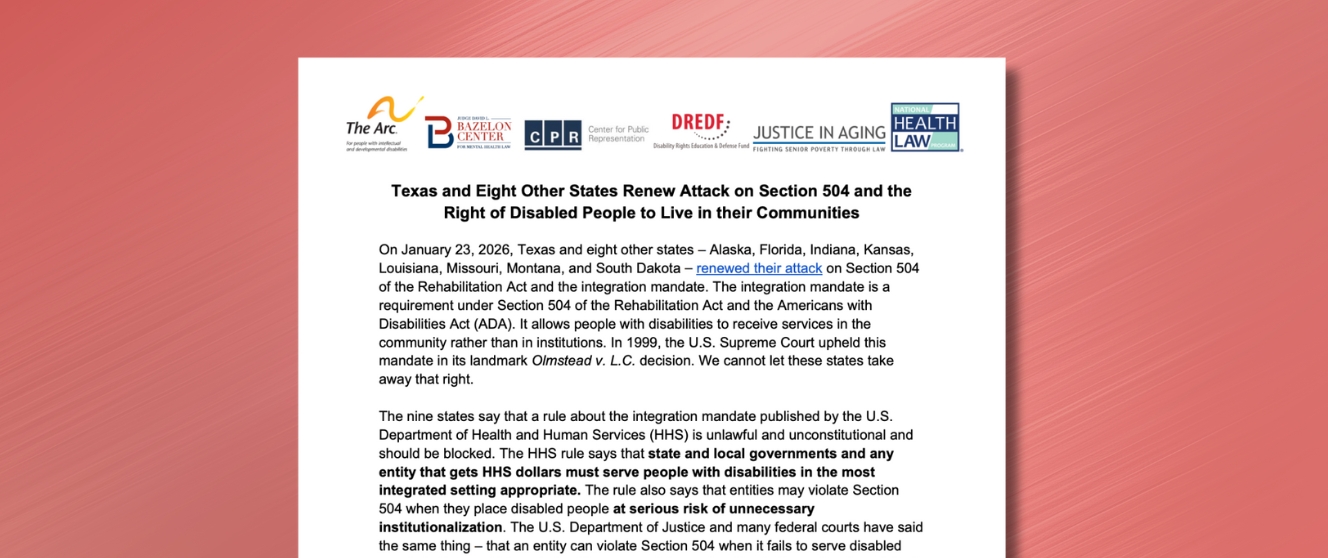
“Rally in Support of Affordable Care Act, Washington, D.C.” Taken February 25, 2017 by Ted Eytan
On July 9, 2019, the U.S. Court of the Appeals for the Fifth Circuit heard oral argument in the latest lawsuit challenging the constitutionality of the Affordable Care Act (ACA). The three-judge panel critically questioned the lawyers defending the ACA, leaving advocates concerned that the circuit court may uphold the district court ruling invalidating the health care law. As DREDF argued in an amicus brief filed in April, a judicial repeal of the ACA would prove devastating to people with disabilities, many of whom rely on the programs and provisions established by the law to have access to high quality, affordable, and less-discriminatory health insurance coverage.
The case, Texas v. United States, seeks to invalidate the ACA on the basis that the law was rendered unconstitutional when the Trump Administration reduced the penalty for not having health insurance to zero in the Tax Cuts and Jobs Act of 2017. The individual mandate is still in effect, but its zero dollar penalty makes it difficult to enforce. The Supreme Court previously declared that Congress only had the authority to impose the mandate under the Constitution’s Taxing Clause. Thus, opponents contend that the ACA’s individual mandate provision is now unconstitutional.
In December 2018, the district court agreed with this position finding the mandate a central part of the ACA that cannot be separated from the rest of its provisions, and struck down the health care law in its entirety. This decision was appealed to the Fifth Circuit, where DREDF, along with 14 other leading disability rights organizations, filed a brief defending the ACA and its many provisions that improved access to and comprehensiveness of coverage of the health care and long-term services and supports that many people with disabilities need.
The Fifth Circuit is expected to release a decision on the appeal this fall. The ruling could take one of several forms: it could uphold the district court’s decision and invalidate the entire ACA; it could invalidate the individual mandate and other provisions deemed inseverable, such as the pre-existing condition protections; it could invalidate only the individual mandate and leave the rest of the ACA intact; or it could uphold the entire ACA. Based on the line of questioning at oral argument, it seems unlikely that the ACA, in one form or another, will remain untouched by the Fifth Circuit—priming the debate for another return to the Supreme Court.
If the ACA were invalidated, the health of all Americans, including Americans with disabilities, would be placed in jeopardy. Studies estimate that an additional 24,000 people would die every year without the ACA’s provisions. The harm will disproportionately burden the disability community, as many disabled individuals rely on health care services and devices to live full, productive, and independent lives. It will also reduce community-based options for aging and older persons by invalidating systemic long term care improvements initiated through the ACA. A judicial repeal would roll back nearly a decade of progress towards health care equity. Disability rights and health advocates will continue to fight to defend against these and other attacks on the ACA.
More information about Texas v. U.S.:
Texas v. United States: Where We Are Now And What Could Happen Next
Explaining Texas v. U.S.: A Guide to the 5th Circuit Appeal in the Case Challenging the ACA

